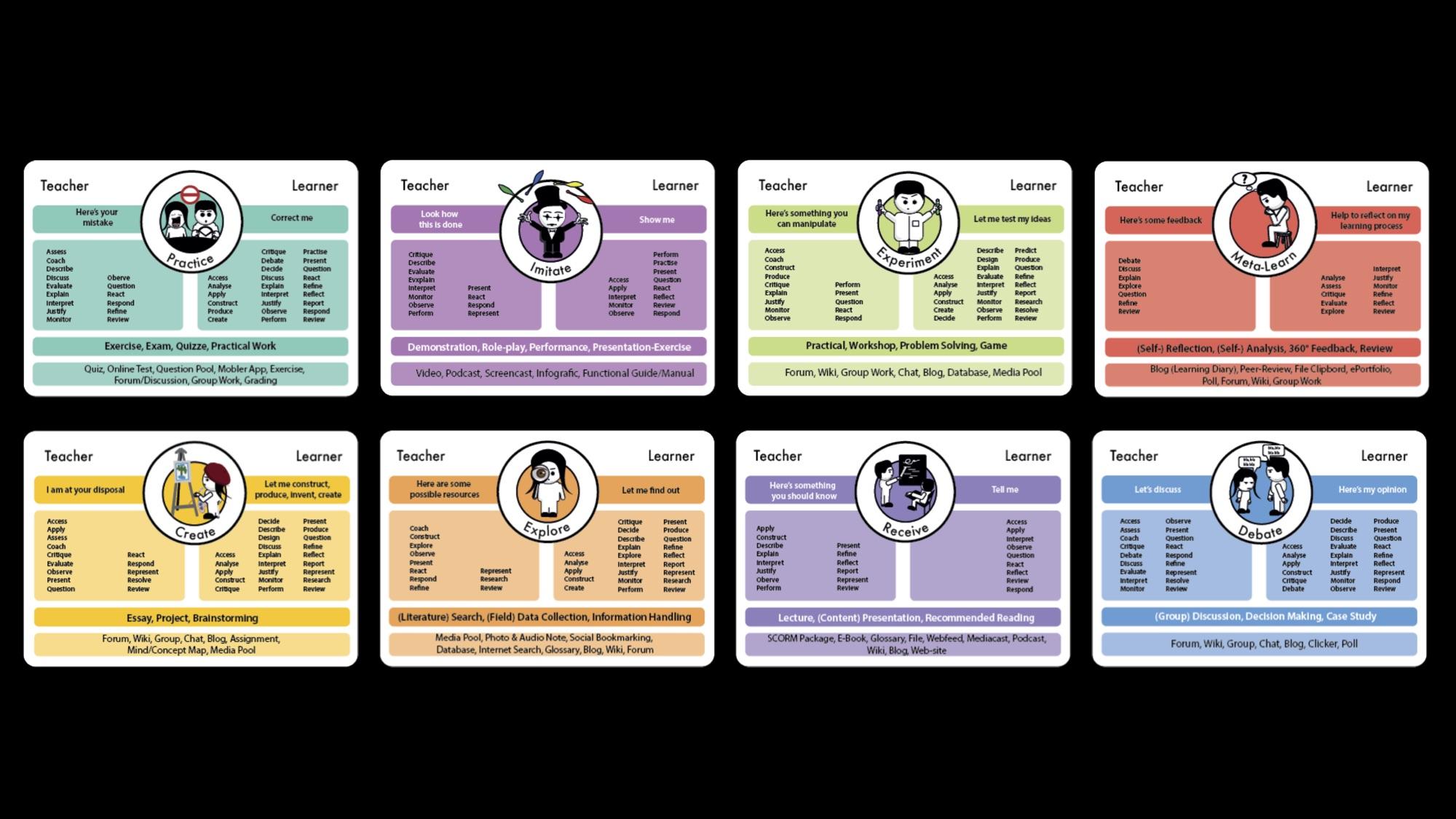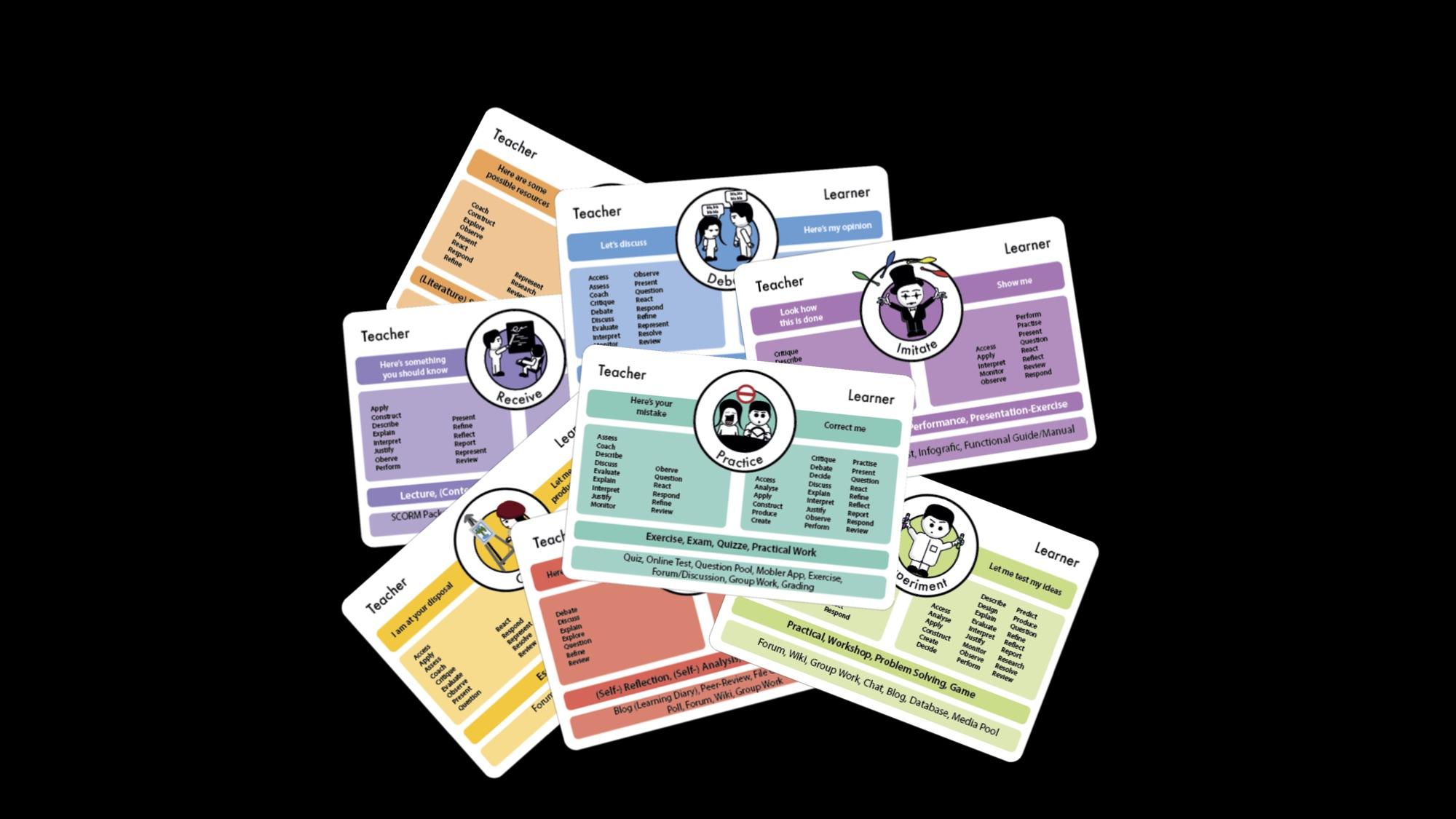Introduction to the Learning Design Cards
Technology enhanced learning is complex and must be prepared carefully. We all know that. Of course, we also know how to apply constructive alignment and scholarship of teaching for successful courses. But with every new technology it seems that nothing works anymore, and we have to start our course designs from scratch. Even worse, we get impatient if the technology does not work as we expect it. Again, education is complex, and if technology is involved, double so.
Wouldn't it be great, to have a tool that bundles this complexity, which allows to design and re-design blended learning concepts, and is easy enough for everybody to use independently from prior technology enhanced teaching experiences?
This is why we developed the Learning Design Cards (picture 1).
 Picture 1: Learning Design Cards, Marion R. Gruber, 2019
Picture 1: Learning Design Cards, Marion R. Gruber, 2019
